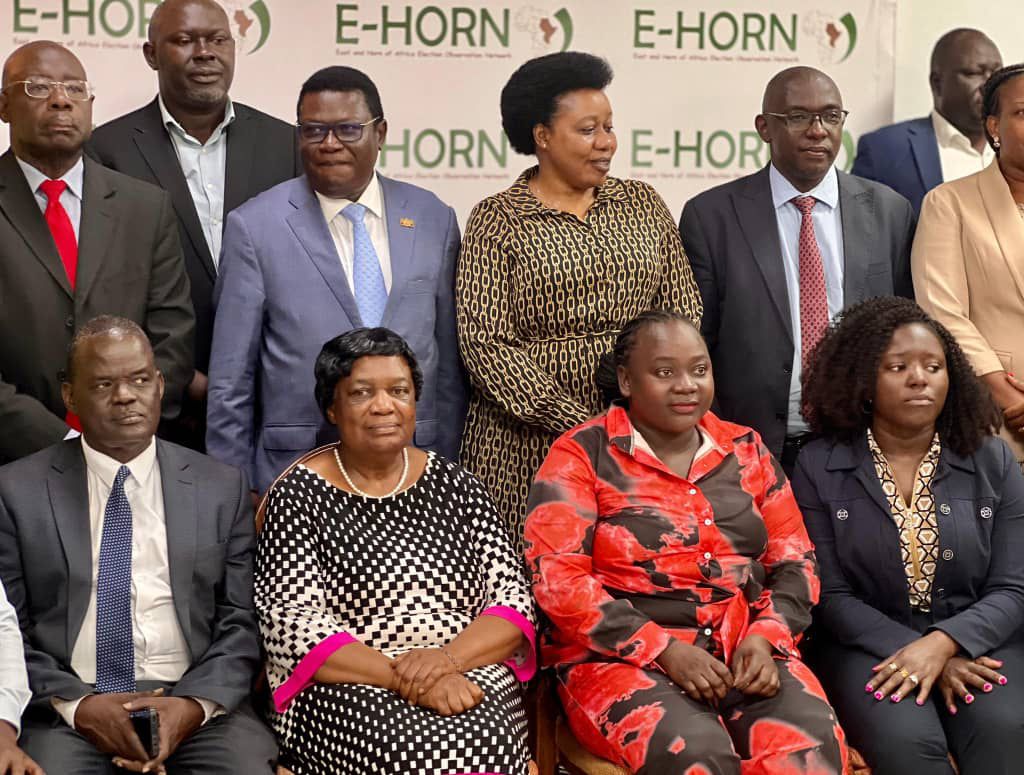Electoral integrity at risk due to security violence and vote buying

Uganda’s upcoming 2026 general elections face serious threats to credibility and public trust due to persistent security-related violence, vote buying, and a lack of transparency in the electoral process, according to governance experts.
Speaking at a stakeholders’ dialogue organised in partnership with the Eastern Horn Elections Observation Network, the Executive Director of the Center for Constitutional Governance (CCG), Sarah Bireete, outlined four major issues undermining electoral integrity in Uganda.
“There are key concerns when it comes to Uganda’s elections. Top among them is the violence and excessive use of force by security agencies, especially the army, which continues to militarise the electoral process,” Bireete said.
She also condemned the increasing commercialisation of politics, saying public offices are being pursued for personal gain rather than public service.
“Politics in Uganda has become transactional. People now expect candidates to pay before they are supported. Leadership is no longer based on vision or merit, but on who pays the most,” she said.
Bireete further pointed to the lack of transparency in the transmission, tabulation, and announcement of results, arguing that the national data center is often dominated by security agencies and foreign observers, excluding key domestic stakeholders.
“This creates mistrust. We need full transparency so all stakeholders can trust that the results reflect the will of the people,” she stressed, calling for reforms to ensure public access to all stages of the electoral process from polling to declaration.
On voter education, Bireete warned that vote buying exploits poverty, leaving voters vulnerable and short-changed. She likened it to “settling for a half kilo of meat when you could have a whole cow” through accountable leadership.
“We must fight voter vulnerability by educating citizens about the real value of their vote and addressing the root causes, especially poverty,” she said.
In response, Electoral Commission spokesperson Julius Mucunguzi emphasised the shared responsibility of all stakeholders’ political parties, voters, media, civil society, and security agencies in ensuring a peaceful and credible 2026 election.
“Creating a conducive environment for free, fair, and credible elections is the responsibility of all stakeholders. Each group must play its role in accordance with electoral laws and regulations,” Mucunguzi said.
While acknowledging the legal role of police in election security, Mucunguzi emphasised that their conduct must remain within the law.
He revealed that the Electoral Commission has initiated engagements with Kampala Metropolitan and regional police commanders to train and orient them on non-violent crowd management.
“We are training and engaging security agencies so that violent confrontations do not become the defining character of our elections,” he said.
He stressed that elections must not be viewed as a battlefield.
“Elections are not a war. They are not a do-or-die affair. We must reject the use of inflammatory language and actions that incite violence.”
Mucunguzi warned that electoral instability could tarnish Uganda’s image as a stable country in a volatile region, especially as it currently hosts over 1.7 million refugees.
He urged political actors to respect the Electoral Commission’s guidelines, act within the law, and promote peaceful political discourse.
“Peace must be the lowest common denominator in our electoral processes. We can have peaceful, credible, and free elections if we all commit to it starting with the Electoral Commission itself,” said Mucunguzi.



0 Comments